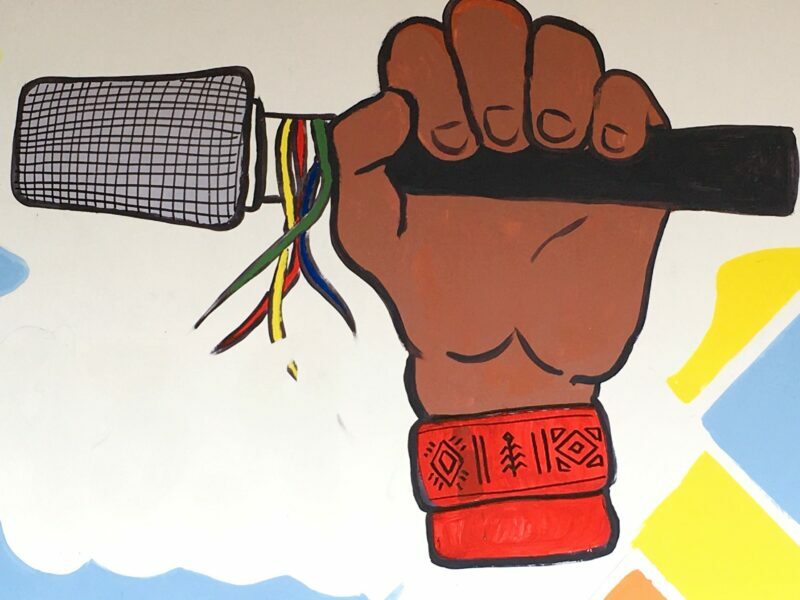Indigenous and Afro-Latino authors reported on what matters to them.
Originally published on Global Voices

Illustration by Isela Xospa, under copyright and used by Global Voices with permission.
In 2021, Global Voices’ Latin American contributors focused on first-hand coverage and essays on Indigenous and Black identity, journalism, and human rights. Other contributors have also reported on Indigenous representation in the media and their concern for the environment.
About 50 million people belonging to 500 different ethnic groups identify as Indigenous in Latin America. According to UNESCO, 8 percent of the region's population is Indigenous, although estimates vary. In 2009, U.S. Congress research estimated that 27.7 percent of Latin America's population was of African descent.
Along with Indigenous people, Afro-Latinos have been historically marginalized in society and the media. See these 10 stories from Spanish-speaking Latin America.
The legacy of Bolivia's El Mallku: ‘Self-governance is fundamental’ for Indigenous peoples
Bolivian Aymara writer Ruben Hilari told the story of Felipe Quispe Huanca, known as “El Mallku”, and his legacy for the Indigenous peoples in Bolivia as he passed in January 2021.

A screenshot of the video tribute to Felipe Quispe from the ‘Videos Bolivia‘ on YouTube, remixed by Global Voices. The original photographer is unknown.
‘Recovering a Central American Native identity is key to stopping our erasure’
Black and Maya artist from Honduras, Samaria Polet Carias Ayala, wrote about how to overcome the erasure of Indigenous peoples in Central America. “It starts with loving our Brown skin,” she wrote.
From Mexico to Australia, Indigenous youth reimagine the internet for their languages
There are some 7,000 languages in the world, but only 10 dominate the internet. That is why Indigenous language activists from Mexico and Australia gathered online in July 2021 to talk about how to increase the representation of their languages and worldviews on the internet. This story sums up the key conclusions of that discussion.
I was invited to celebrate ‘Columbus Day.’ This is what I answered
Afro-Salvadoran writer Carlos Lara had been invited by El Salvador's Ministry of Culture to celebrate the National Day of Spain on October 12, a day also known as “Colombus Day.” He replied that “The ‘National Day of Spain’ is a mockery and offense to our Indigenous and Afro-descendent peoples.” He explained why in an essay for Global Voices.
Germinda Casupá, a Chiquitania native fighting fire and machismo
Global Voices’ Bolivian media partner Muy Waso reported on Germinda Casupá's story, an Indigenous woman who fights for the endangered environment of the Chiquitania, the largest tropical dry forest in the world.
Indigenous-led telecommunications organization wins historic legal battle in Mexico
Mexican author Jacobo Nájera reported on how an Indigenous-led telecommunications organization won a legal battle to continue to provide affordable cell phone access to local communities in Oaxaca.
Indigenous reporters risk death telling stories of community liberation in Colombia
Colombian reporter Fernanda Sánchez Jaramillo reported on the importance for the Kokonuco people in Colombia to have their own communication channels, namely non-profit community radios, as Indigenous reporters are often discriminated against in journalism circles.

“Micrófono en mano”: A painting on the wall of the indigenous radio station in Corinto, Cauca. Photo by Willian Mavisoy Muchavisoy.
Indigenous peoples join the national struggle in Colombia's strike
Fernanda Sánchez Jaramillo also reported on the Misak, Awá, Kokonuco, and other Indigenous peoples who joined the historic protests for more equality and healthcare in Colombia. They drew on their historical experience of resisting discrimination and unfair treatment.

Claudia Pai and other Awá women participating in Colombia's Minga and demonstrations. Photo courtesy of Clever Bolaños, used with permission.
Indigenous people denounce Chinese oil giant's extractions in Peru's Amazon Forest
Using the analytical methodology of Global Voices’ Civic Media Observatory, researcher Isolda Morillo delved into the controversial investments of China's largest oil company in Peru's Amazon Forest. Indigenous and advocacy groups developed strategies to ensure that Chinese investment in their communities includes them in the decision-making process.
How a Salvadoran artist teaches Nawat to empower transgender people
Salvadoran author Eddie Galdamez interviewed Petrona Xemi Tapepechul, whose work vows to unite two marginalized communities: the Nawat language speakers of El Salvador and transgender people.
Thank you for reading Global Voices this year as we continued to highlight underrepresented voices from Latin America and around the world.






Post a Comment